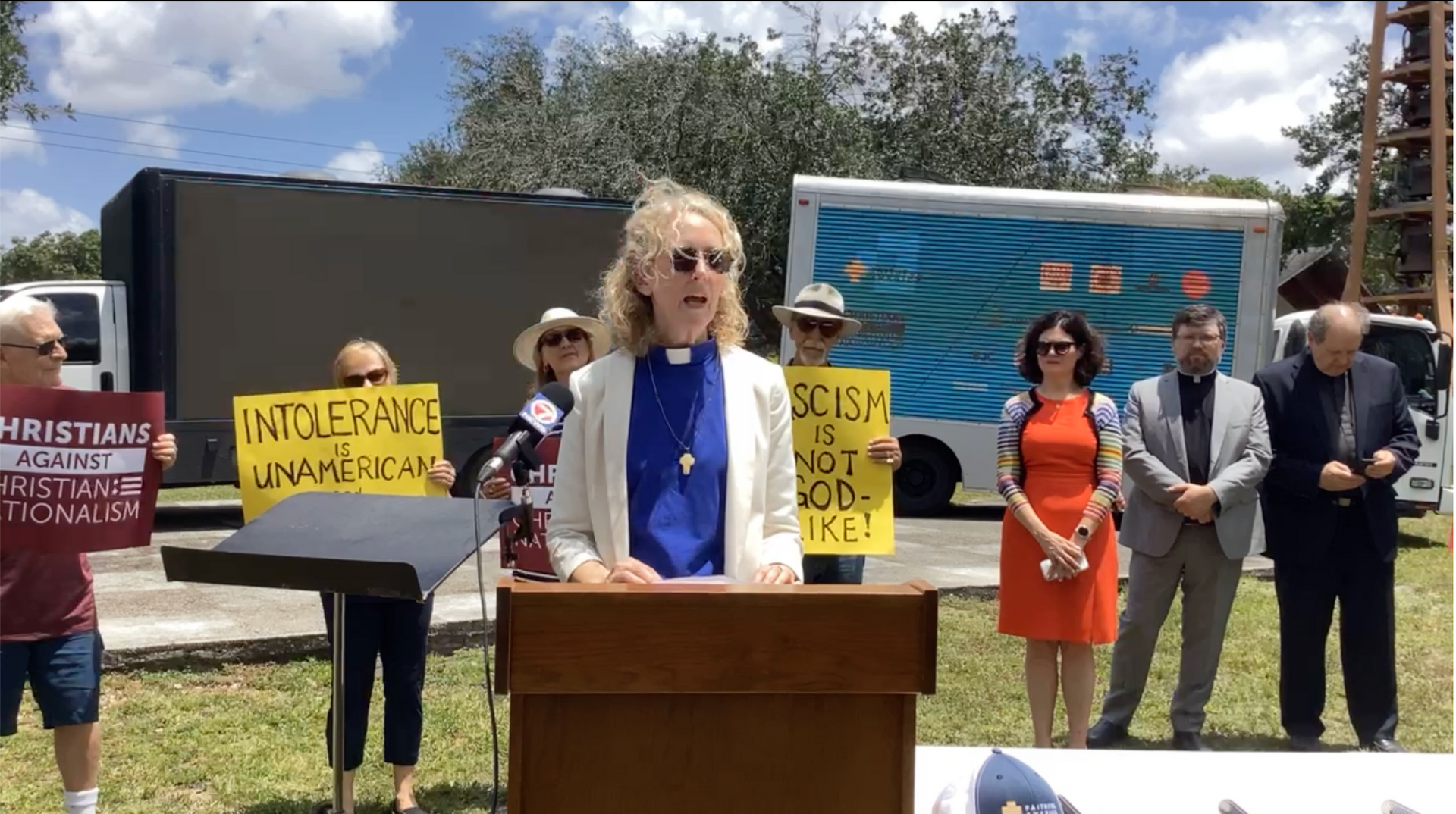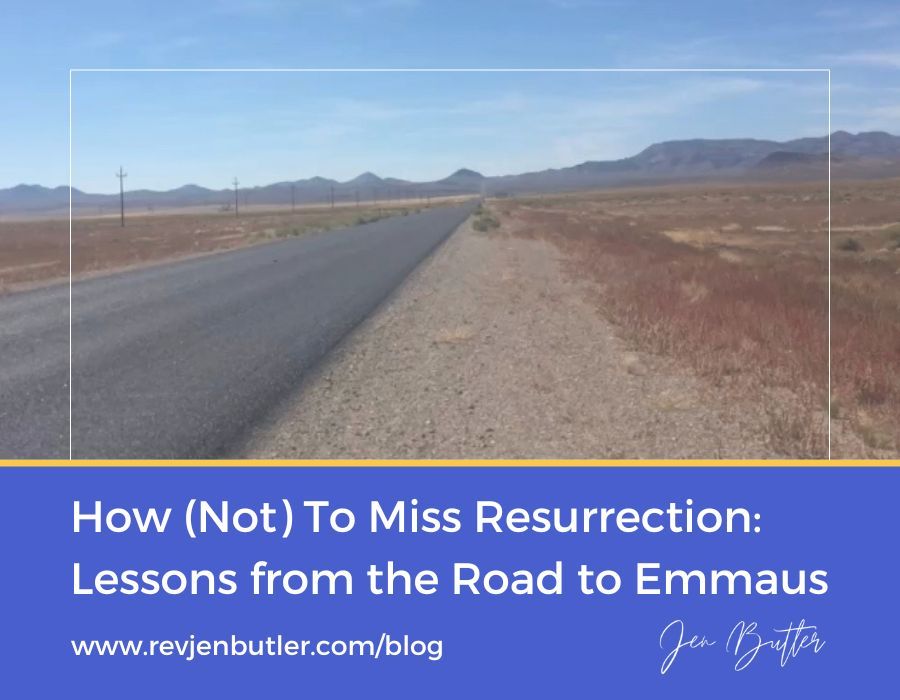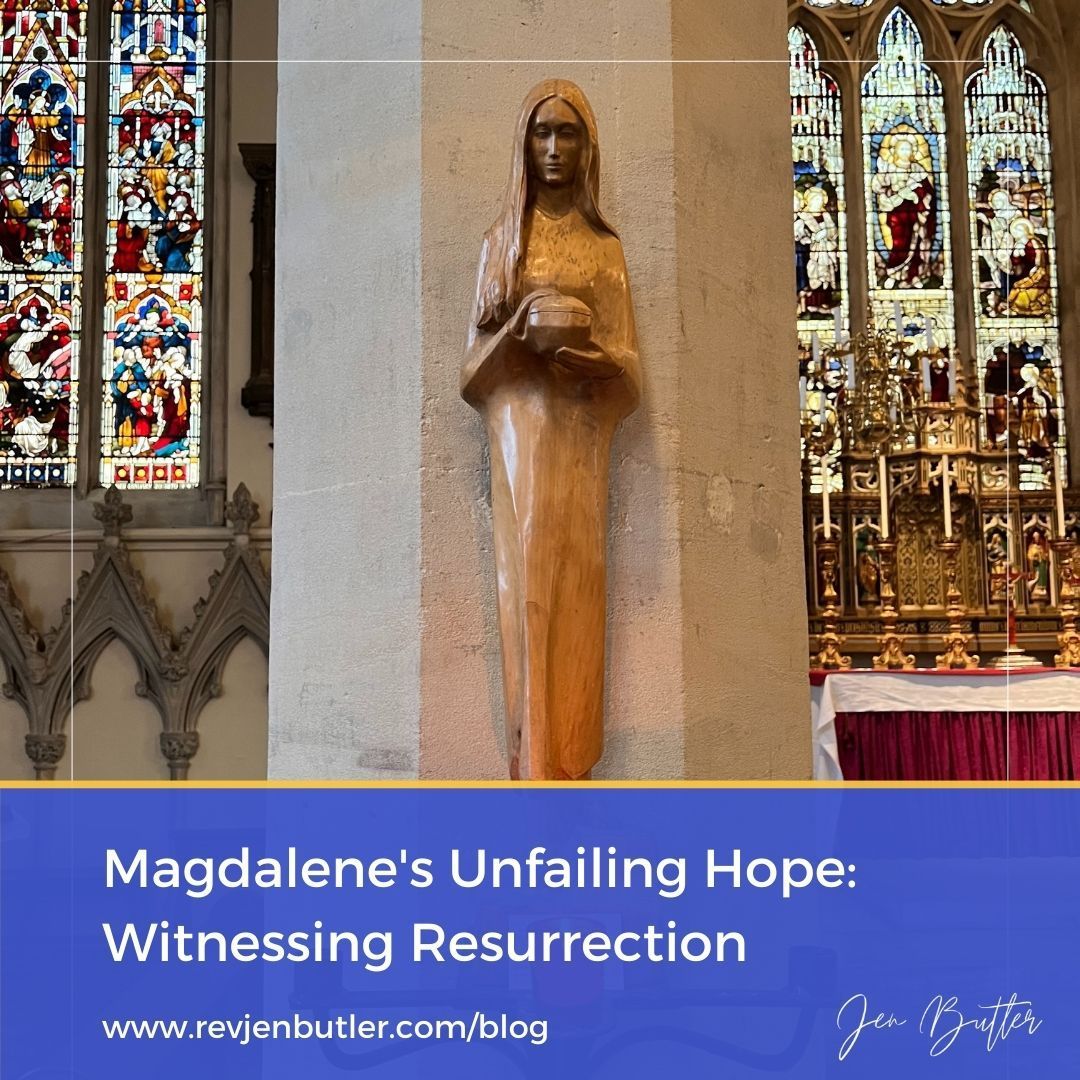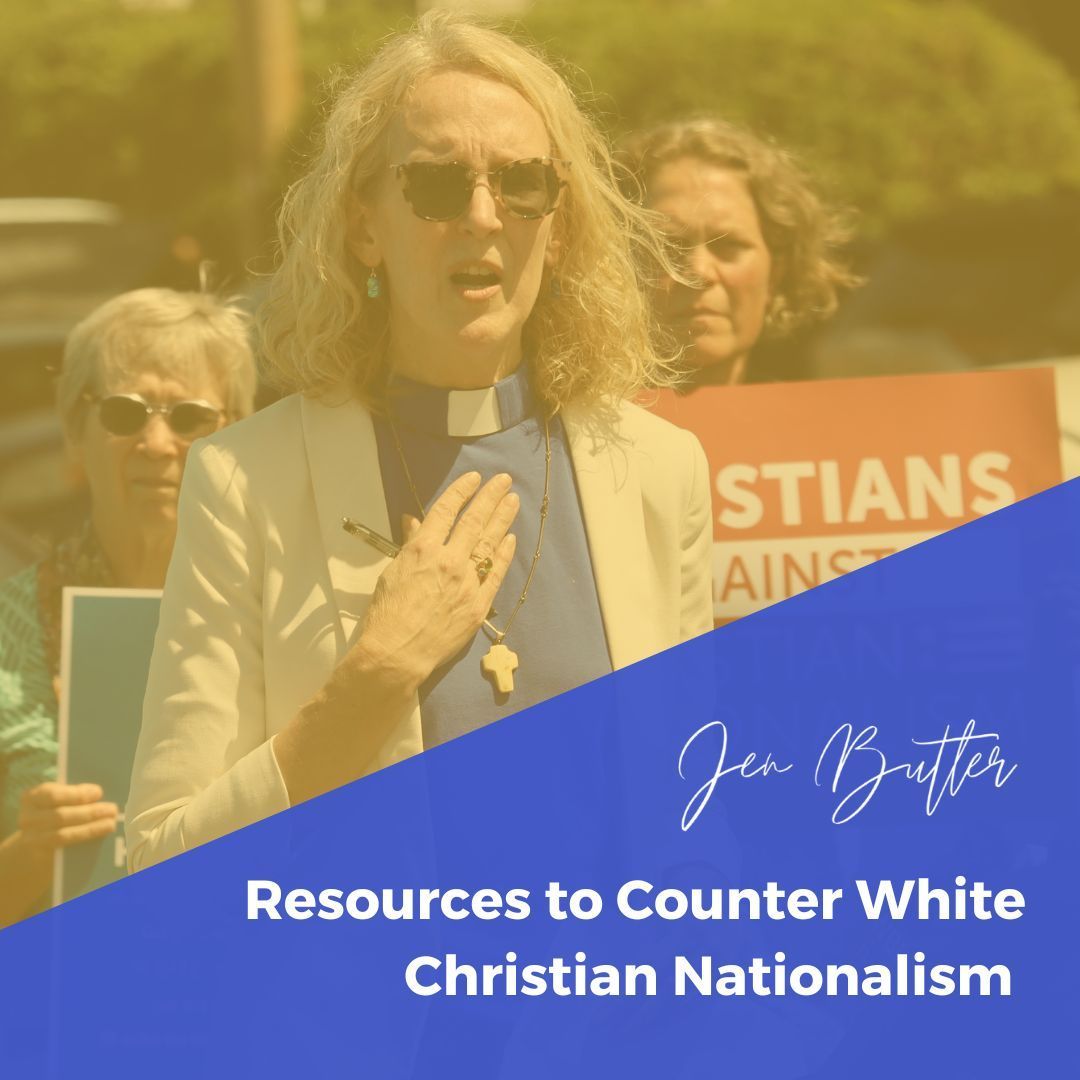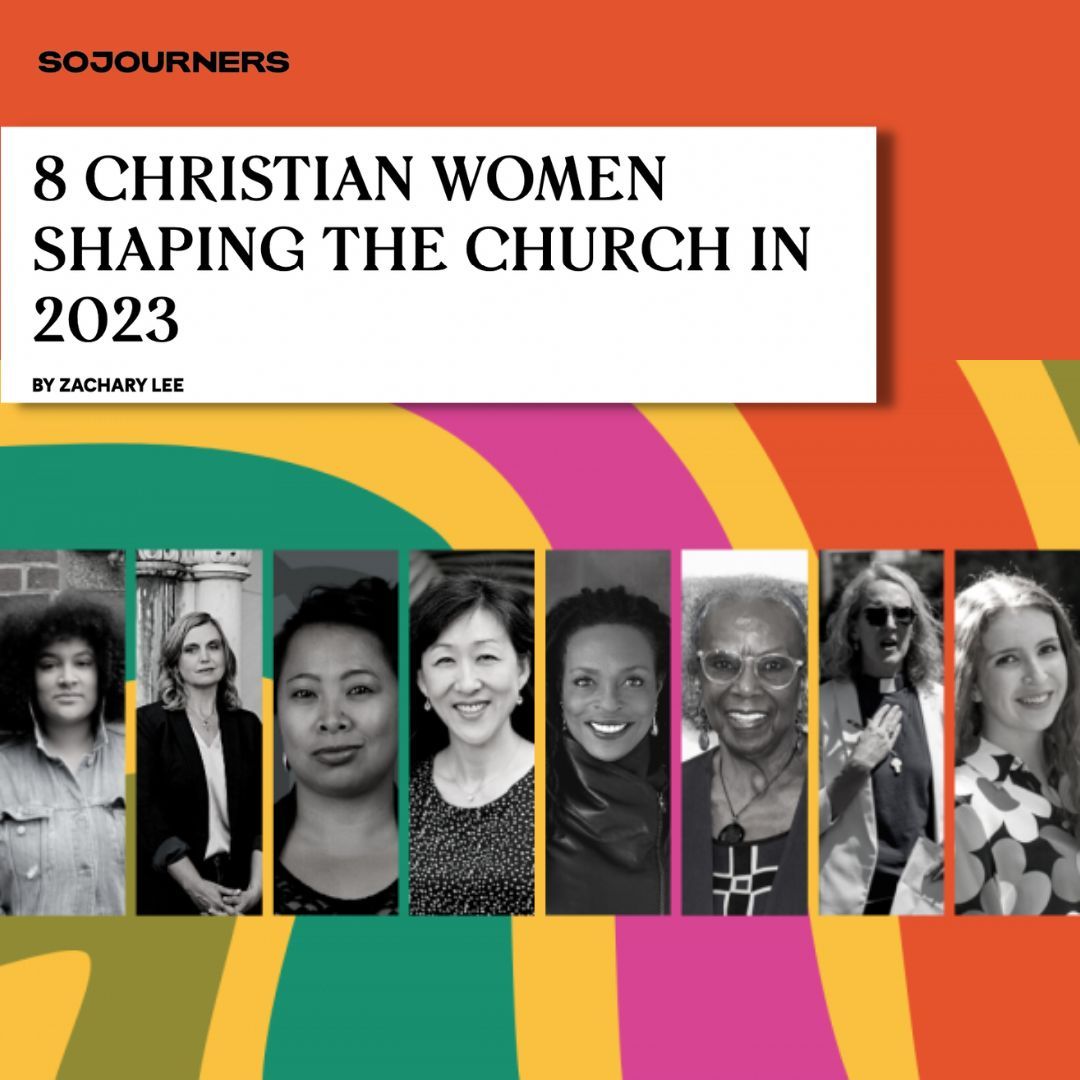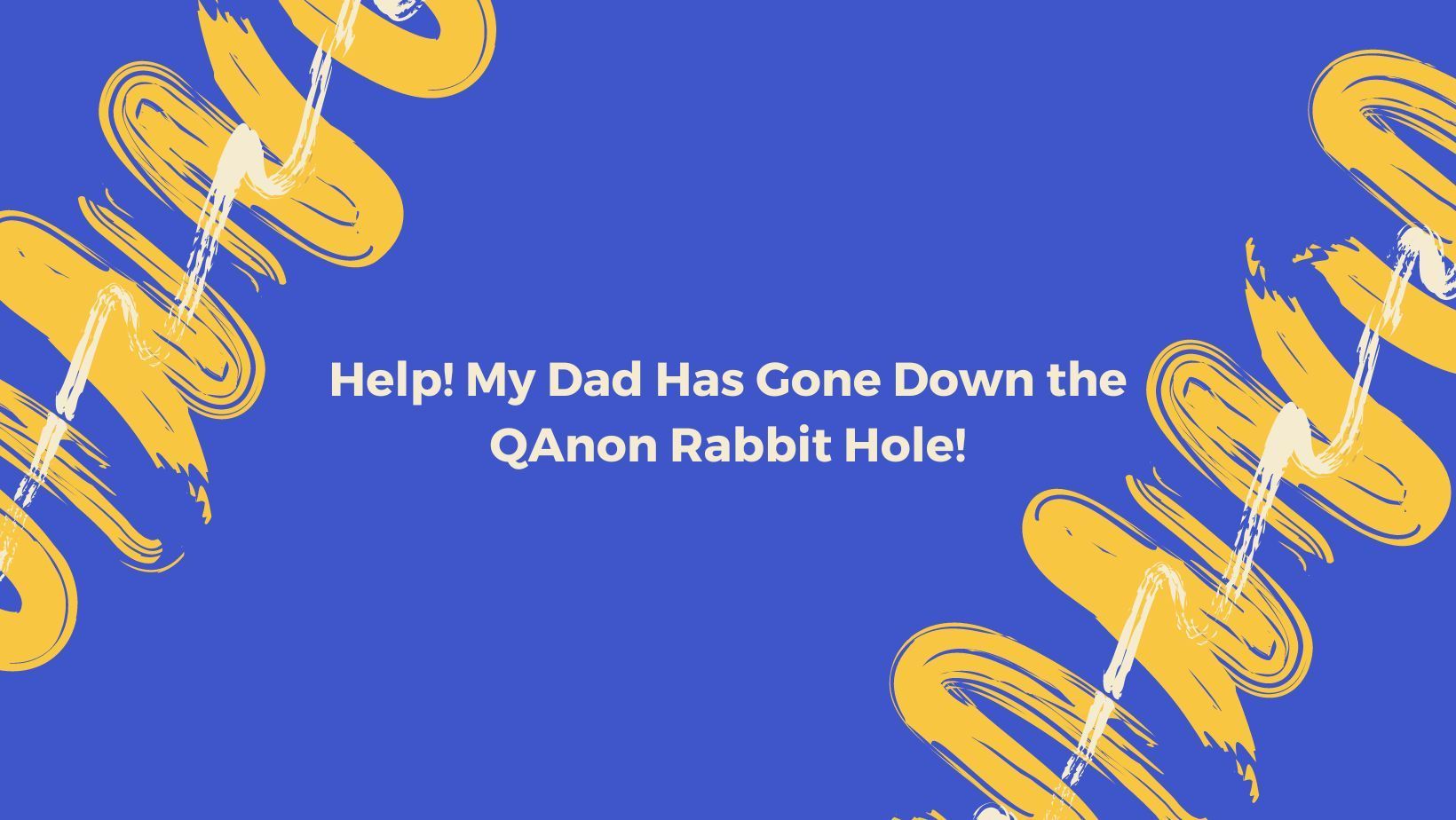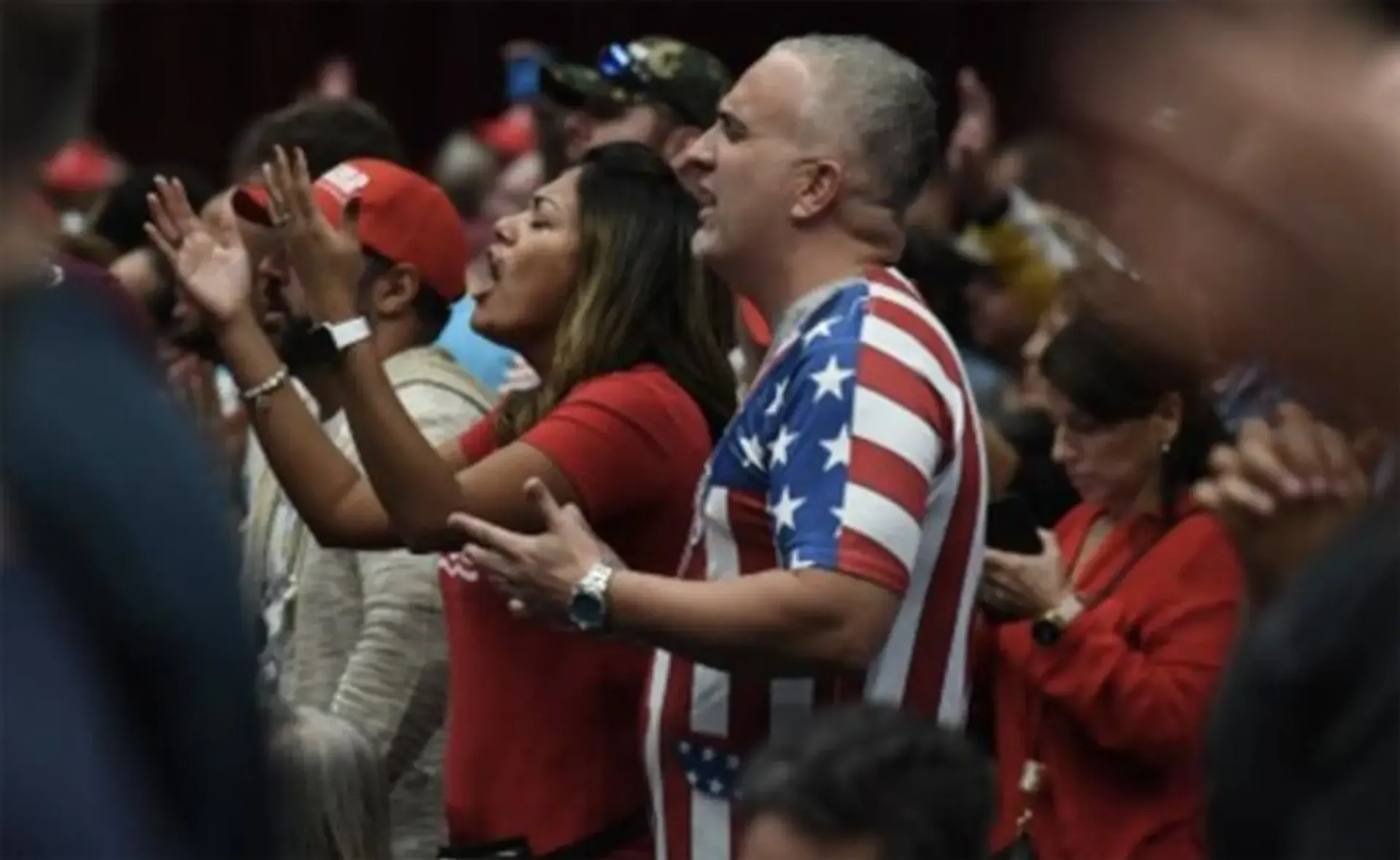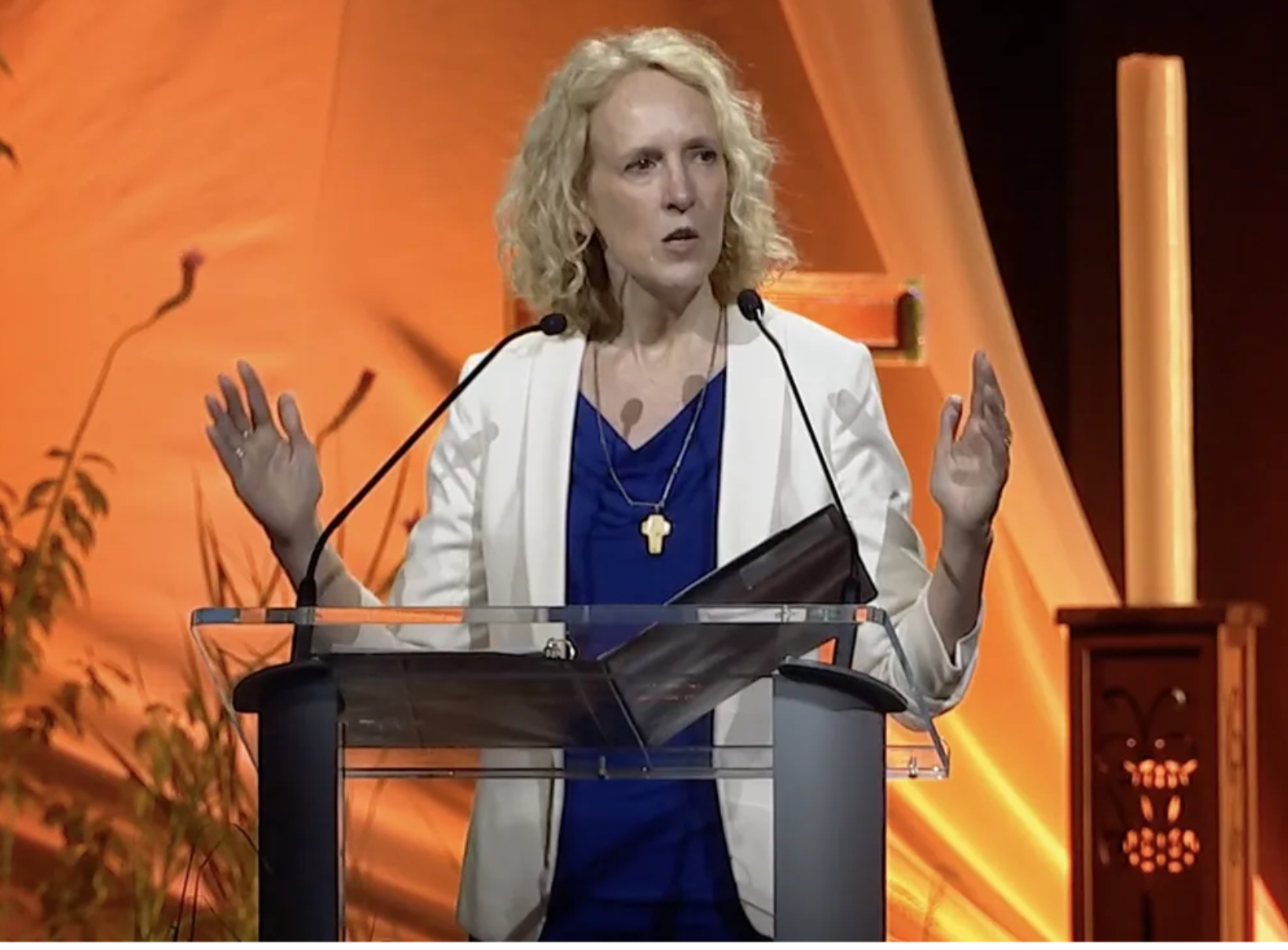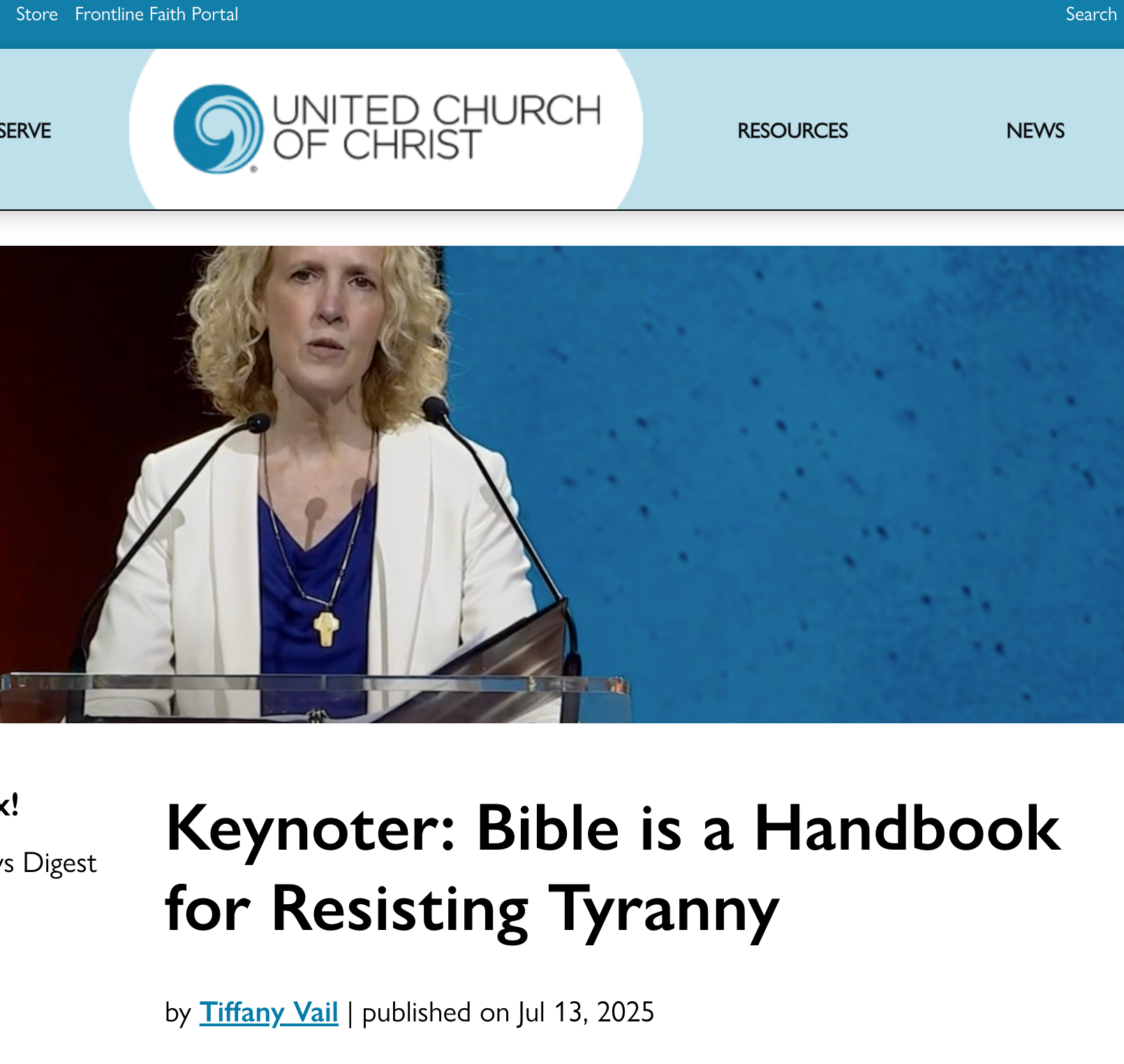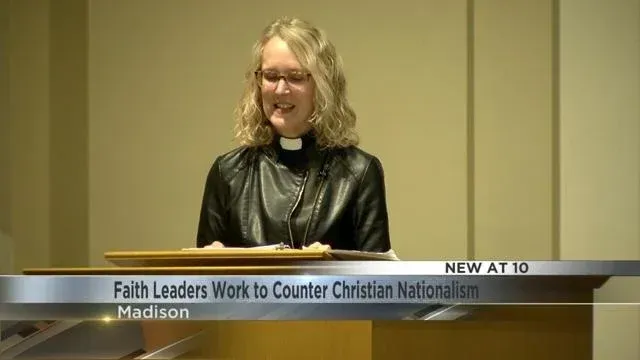Embracing Abundance | Countering a culture of Scarcity and Anxiety
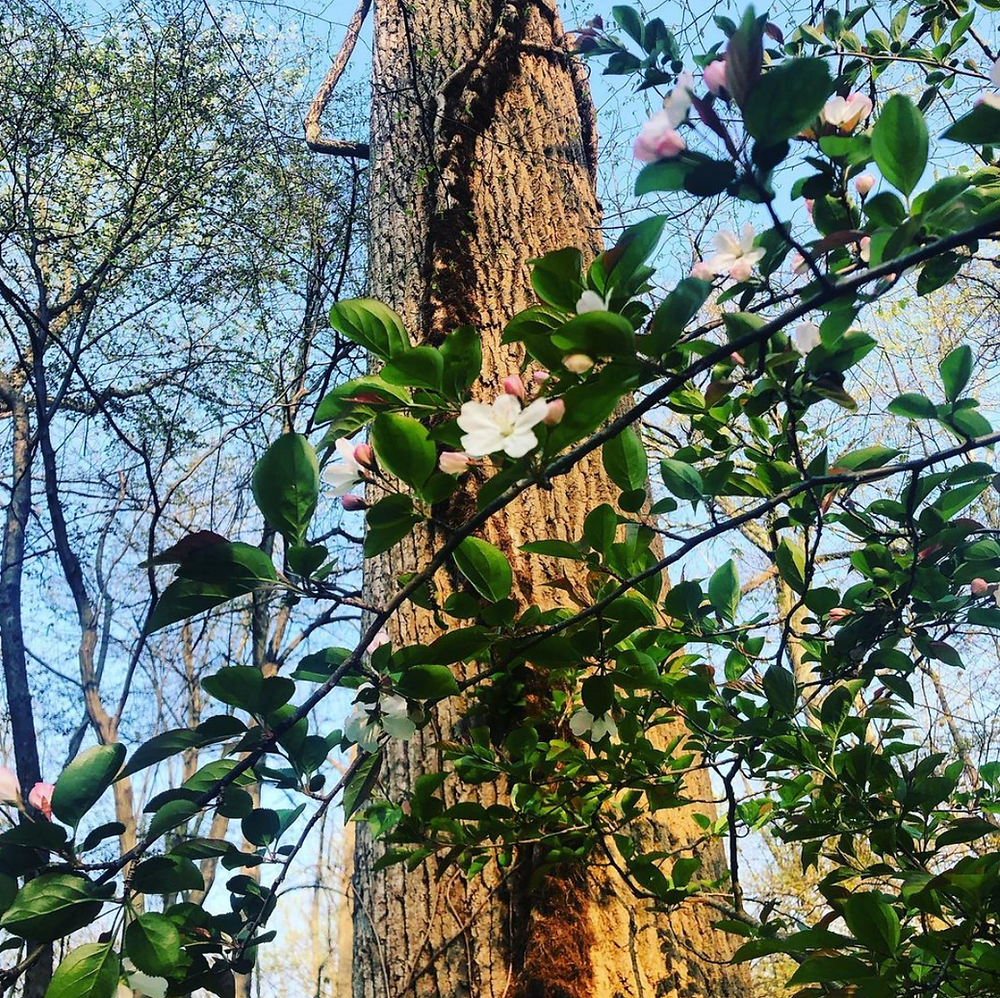
I’ve been doing some research on anxiety lately, and I never realized until recently how much I struggle with it. I notice it is worsening with age, manifesting in lack of sleep, busyness, and workaholism. When it’s really bad I’m hard on myself and others. To be honest, I think most people living in the U.S. struggle with it.
We shouldn't be surprised. We live in a culture of fear and scarcity that blinds us to the ways our economy is built, not for human flourishing but, to enrich a few at the expense of the majority. We are urged to consume more, be more, work harder, keep busy and look over our shoulders. Politicians mobilize racial resentment to cover for the fact that their corporate donors are stealing from all of us. They suggest communities of color have defrauded the voting system despite massive evidence to the contrary or that falsely speak of welfare queens stealing from the government.
In my book, Who Stole My Bible, I write about what historian Timothy Snyder in The Road to Unfreedom calls “eternity politicians”; those politicians who use spectacle to manufacture a crisis and manipulate the masses by instilling fear:
Eternity rulers deny passion-- the ability to empathize with another’s pain. The religion of such empires is merely an opiate designed to control and deny the suffering of the people. It serves the power and glory of an empire that can do no wrong.
They are called “eternity politicians” because they overwhelm us with the lie that tyranny is unassailable. In the Bible, prophets set an example by stepping into this “royal reality” and disrupting it by giving voice to suffering, and those who suffer are the most impacted by scarcity thinking. We also must step into the present reality and address how we're feeling so we can act and respond accordingly.
As a child, I lived in the moment. I used to run confidently through the woods, barefoot and covered in dirt. I was fully present and engaged with my surroundings, and I had no adult worries and a clear mind (I often wonder if the clear-mindedness of children is one of the reasons Jesus felt close to them). I didn’t let my anxious thoughts carry me into obsessing about the past and future.
One of the silver linings of COVID life is that I now have time to take to the woods again. If my mind tries to carry me out of the present while hiking, I shift my focus to my dog Auggie's enthusiasm for every living thing, and how her nose pumps exquisitely in the soil, flushing out its mineral scent, and the way her ears pivot like radars as she takes in each beautiful moment of the present. I’ve been thinking about how quickly the landscape is changing, as I hike, each week. There's so much growth and lush grass, Spring showers, and new blooms. Everything organically making its way where it needs to, and there's enough water, enough pollinators, enough sunshine for all. Seeing that, I reflect on how we've everything we need to practice abundant thinking.
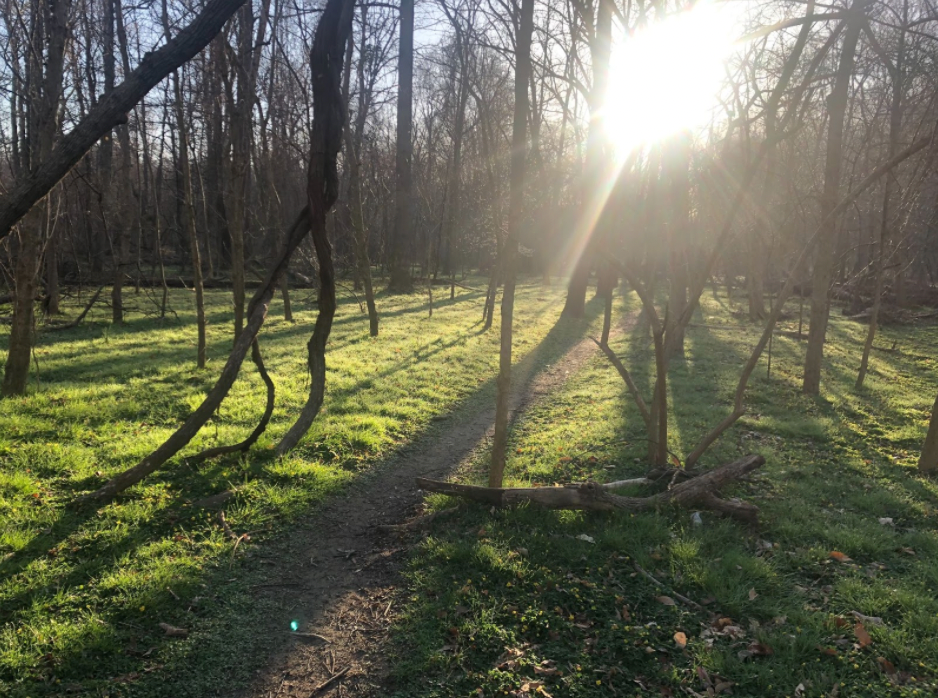
Consider the final chapter of Luke 24--this week’s lectionary reading-- in which Jesus appears to the disciples yet they continually fail to recognize him. They come to their senses on two separate occasions-- first after he breaks bread (v. 30-31) and then when he asks for fish (v 41-43). Imagine the sound of bread crust breaking, and the sweet scent of fish grilled on a spit over an open fire. These fishes and loaves echoed the memory of their last communion, and that brought the disciples out of their fear and anxiety, and back into themselves and to God. They receive a vision of abundant life shared with one another over and against the systems of oppression that dominated their existence.
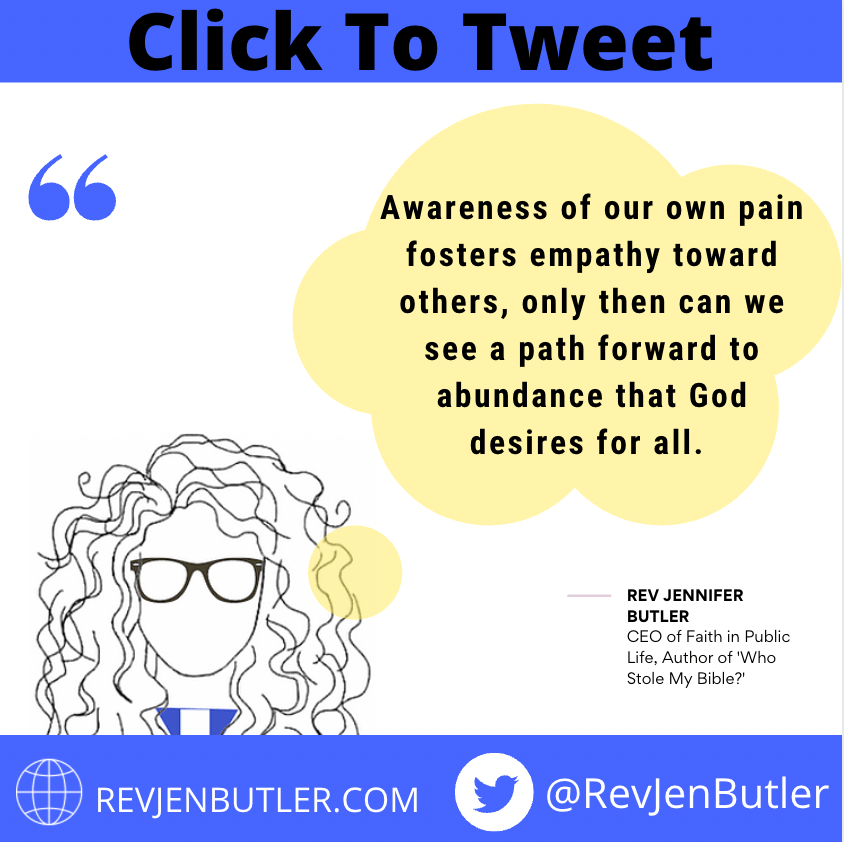
Our current culture of scarcity trains us to be anxious, not to pause or listen to our pain, and over time that numbs us to be able to relate to the pain of others. Awareness of our own pain allows us to see the oppressive systems at work within our lives and our nation. That’s why Jesus appears after the resurrection with wounds still open.
Jesus spoke of abundance in the midst of a brutal empire that impoverished 95% of its population. Many would've viewed Jesus’ vision as impractical and many in the U.S. say that about current economic proposals, but when we are in touch with our pain and that of others, we can see the way forward to the abundance God desires for all of us. Consider these two revelatory pieces of information as we consider our nation’s abundance:
- Economists say we can eliminate poverty in the United States for 12 percent more than the 2017 Republican Tax Cuts.
- The recently passed Covid Relief Bill just cut child poverty in half.
There’s abundance for each of us to re-imagine what is good. We can counter the scarcity mindset by grounding ourselves individually and within our communities, and resurrect with a brighter, renewed vision that serves the whole. We can only do this when we have eyes to see; when we are not blinded by the corruption and greed we’re exposed to in our political world.
Action:
So, how has the scarcity mindset shown up in your life? How do you manifest abundance for all you need so you've no fears or worries? What pain are anxiety are you needing to confront right now? What disciplines can help you confront them? What support would you need to help you live in abundance? Who are people you can reach out to for helpful reminders to pause?
For starters, I’m learning to really pause and listen to my body. I notice the crick in my neck, the restless sleep, the twinge in my gut. Sometimes it just helps to stop and ask yourself, ‘what is it?’ Being in touch with ourselves builds our capacity to relate and empathize with others. Do I feel tense anytime I log into Twitter or hear the news on the TV? Do I flinch when someone makes eye contact with me, do I flinch more when it’s a man or a person of color? What is my body telling me about the unlearning I need to do? I’ll admit, it’s a bit challenging to slow down and try to figure out how and what I feel. I find it helpful to turn to poetry, music, or nature as a form of prayer. I learn for myself what undoes my defenses. For me, it can be as simple as tunes from Mary Oliver, or Elton John (don’t judge), and me hitting my feet on the pavement on a nearby trail or in the woods.
A Prayer:
God who brings us:
Manna from heaven in the wilderness;
Loaves and fishes out of nowhere;
Crusty bread is broken on the side of a dusty road;
Freshly caught fish shared in the shadow of death;
You give us a vision for abundance.
Yet others would have us live in fear that there is not enough.
We breathe in--there is plenty.
We breathe out--scarcity is a lie.
Today guide us to find space for personal and communal flourishing.
